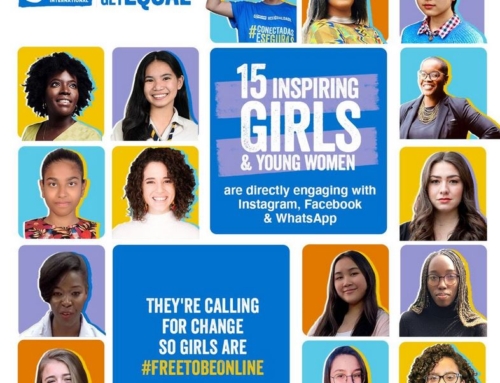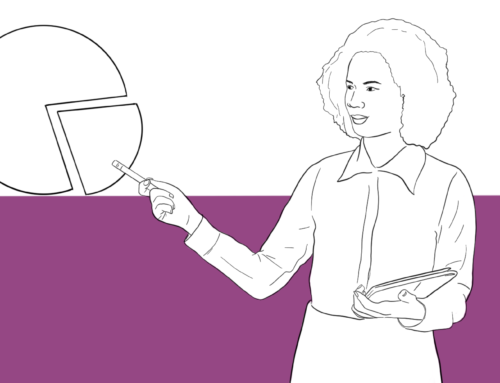Facebook, founded in February 2004, has over time accumulated its revenue to as high as earning $16.6 billion in a single quarter; which it earned in the last quarter of 2018. For a company that is branded as a free social media and social networking service, one wonders where all this revenue comes from. Online reports reveal that most of the company’s revenue comes from targeted advertising while other non-advertising avenues such as in-app purchases are also used to broaden their revenue canvas. But Facebook isn’t the only advertising company or social media platform out there so why is their advertising revenue higher than most? Perhaps the answer to this is “personal data”.
It’s no secret that Facebook’s business model is to use its user’s data to target users for marketing. Evidently, marketing campaigns that employ big data have proved more effective than the old method of aggregative advertising used in the past. This is one of the reasons behind the popularity of Big Data, Artificial Intelligence, and Data Science which are currently generating a lot of talk to date. Big data helps eliminate intuition and guesswork when determining what customers want by allowing marketers to develop buyer personas using data to understand customer behavior, backgrounds, perceptions and purchasing patterns, and a lot more. A very common example of this is used in online stores, once a user clicks on a particular product, recommendations basing on that product will be generated. And then based on how a user responds to the recommendations, others are created. Sometimes such recommendations are based on what other users clicked on and the employed algorithm uses this as a basis to predict what you might also like.
Elsewhere, social media platforms like Facebook collect data on how a user engages with posts by friends and brand pages, and the Facebook News Feed algorithm also predicts what you want to see based on those past interactions with friends or brands. Then, it aims to put similar posts upfront in your News Feed from the same people and pages and from those with relevant posts or profiles. This means the content that receives the most reactions, comments, and shares will be the highest which makes Facebook and other social media platforms ideal for marketing.
A few years later, social media has also become the best tool for promoting democracy. Democracy can be defined as a system of government in which power is vested in the people and exercised by them directly or through freely elected representatives. This means democracy exists to prevent the entrenchment of power. Social media promotes democracy by educating voters, protecting human rights, promoting tolerance among various social groups, and ensuring that governments are transparent and accountable. But the same social media is where large quantities of user data are harvested so what happens when this data is used in a democracy?

Cambridge Analytica came under fire after the 2016 US election. The company was creating targeted advertisements from the data it collected and used this to influence voters’ decisions. The company used psychographics based on the belief that voters’ choice is influenced in part by personality, not just demographics and geography as other data analytics companies are inclined to think. The company is said to have aided Donald Trump through his 2016 presidential campaign which subsequently resulted in victory. Cambridge Analytica applied psychometrics to profile the personality of every adult in the US which information was later used to play on people’s fears, needs, interests, and many more, pushing them to vote in favor of Donald Trump. The marketing was channeled in the forms of Newsfeed adverts on social media platforms on Facebook and through Groundgame, an app for election canvassing that combined the processed data with mapping technology so canvassers know exactly how to approach a voter before knocking on their doors.
As regards whether this manipulation is wrong in politics, that is still a debatable issue, after all, some claim “Politics is a dirty game” and has always played on the art of persuasion. And so Cambridge Analytica was not infringing on voters’ free will, all they did was target their clientele’s messages more efficiently, rather than resort to blanket advertising. But the issues start to come in when we consider data access and data processing which tends to favor those in power since they have the funds they need to access the large volumes of data and employ the best data professionals at their disposal which might not be the case for the majority. So is it wrong to efficiently and effectively manipulate data to endorse political opinions and influence policies?
While data use in democracy specifically in voting is still debatable, organizations and citizens alike greatly depend on data to influence democracies from the bottom-up and should be given free access to it. This is an area of key emphasis in building an open government. Seeing as denying people access to this data is viewed as withholding their rights which is also equivalent to an undemocratic dictatorship, as people are denied the power to hold their governments to account.
A single social media platform like Facebook has over two billion users, each leaving behind a digital trail with every like, click, share and post, generating large quantities of data. As more platforms come up, the volumes of data continue to grow making it hard to control and regulate. It then ends up being used in places it shouldn’t be, like voting. So, is our personal data safe? And might it be used by individuals, companies, or governments to influence the democratic process? Better yet, are these the right questions to ask?
By Arthur Kakande Communications Lead at Pollicy.





Leave A Comment